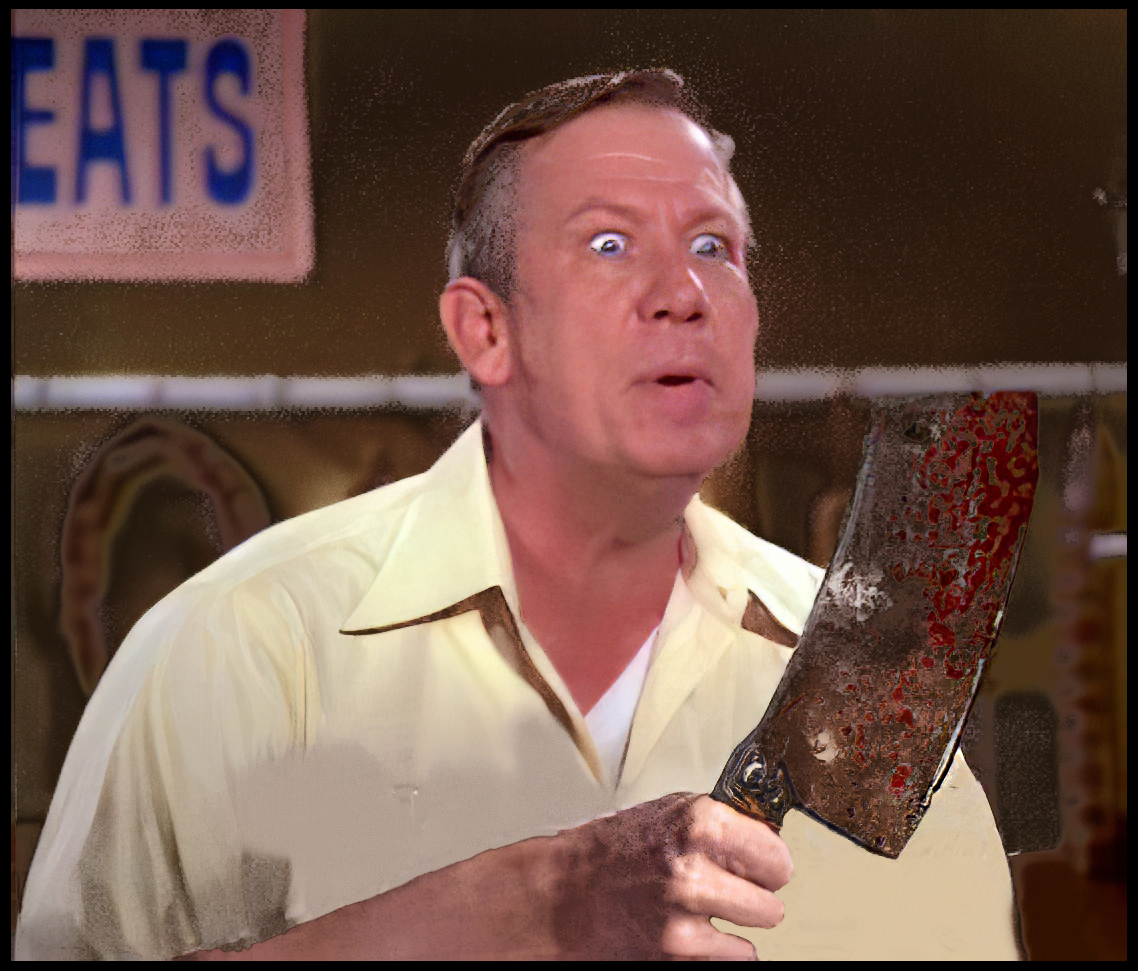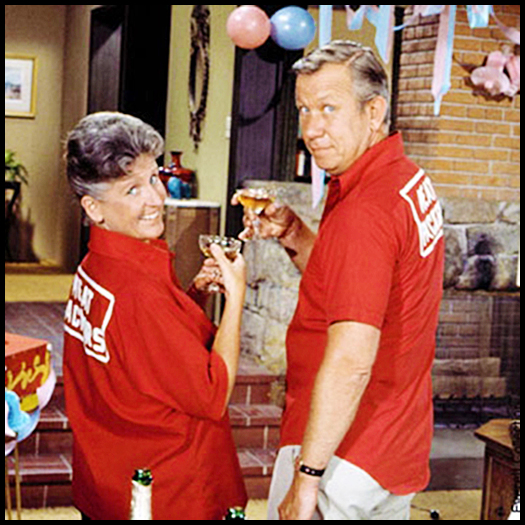All other faces revolve around Alice, archetypical, aging yet ever fecund earth-mother to a wounded planet-child; sick unto death, yet unable to perish. Straight from "Love That Bob," and presumably still smarting from that experience, Anne B. Davis exemplifies in stark glaring truth this Rhea, this bedrock of monotheology. A ravenous, threatening, capricious yet overtly well wishing female, she roams the Earth,seeking to propagate life, hoping yet to sow the seeds of existence of yet another suffering generation of the doomed and despairing children of dread.She, paradoxical as it may seem at first, is closely allied to Sam, the Butcher, a grim figure of dismemberment and decay set among the gleaming perfection of the Brady Universe. His profession alone is enough to illustrate his dark and lonely role in the show. Butcher. Grim Reaper; Destroyer of Worlds, the shadowy Id-figure. The Krell; indeed the dark side of humanity; the bane of beauty and light.
Rarely do we see him, this "Sam," at his dark trade. Rather, his profession is only darkly alluded to, in hushed tones, a thing, like death, not to be discussed loudly and with candor... a subject taboo and feared. Grimly cheerful Sam, who by his ever-flirting, yet never consummated relationship with the Alice-figure (The Life Goddess) reveals the cosmic unity of form and formlessness by articulating the whirling and ultimately destructive finality of Fate,
yet at the same time reinforcing the dogmatic fundamentalism of the polarizing division which marks the whole of experience; the good-bad, yin-yang, black and white, life and death mythos perpetuated endlessly, and here so eagerly dispensed like Manna falling silently onto a parched desert of swirling apathy.


